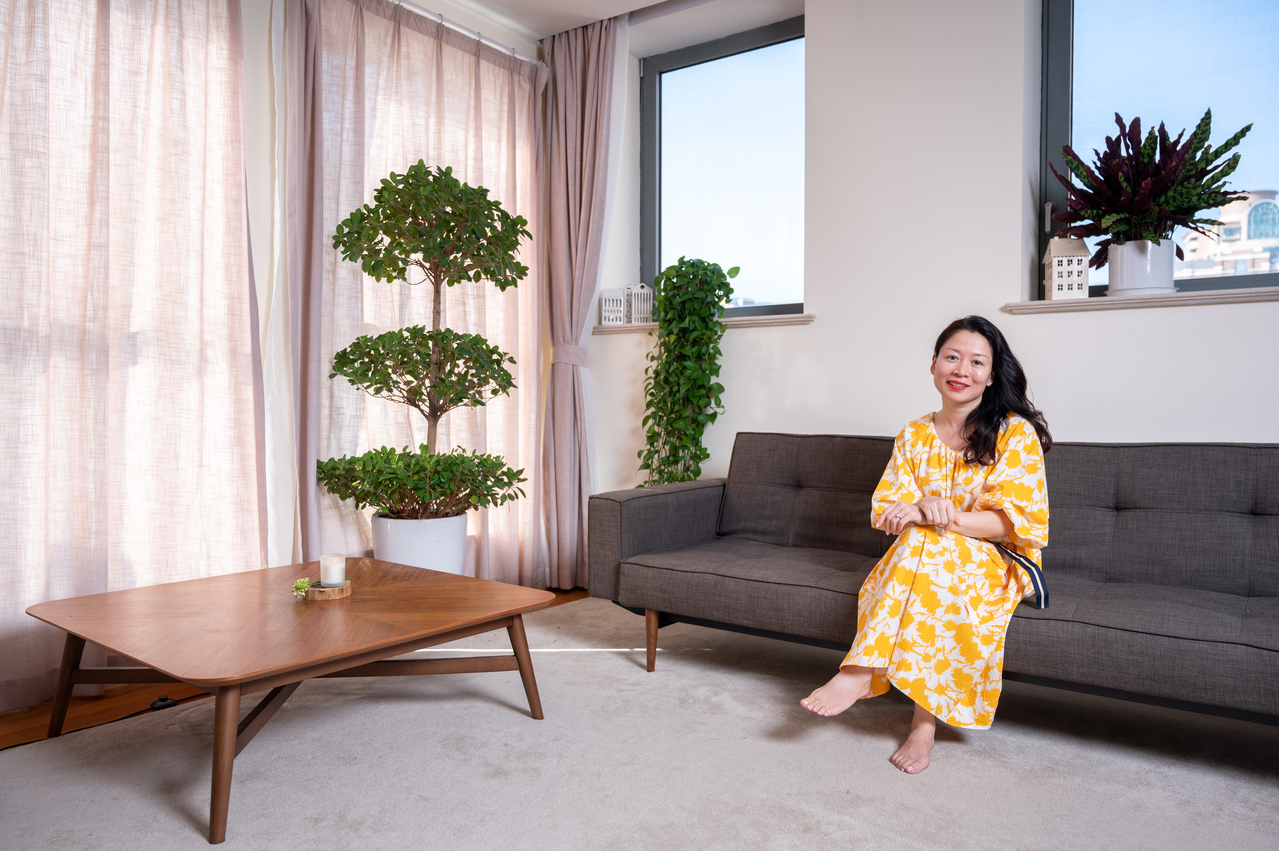Tidying takes off during Covid-19: Jettisoning the physical and psychic load
Sign up now: Get ST's newsletters delivered to your inbox

Ms Eve Wee-Ang has been giving KonMari courses to the expatriate community in Shanghai.
PHOTO: COURTESY OF EVE WEE-ANG
SINGAPORE - For 10 years, Ms Eve Wee-Ang toted seven boxes of mementos with her as she moved house four times.
Ever since she left her childhood three-room Housing Board flat for her first marital home, she would "sentence these items to imprisonment in the storeroom" in all the homes she found herself in.
The boxes included photographs, keepsakes from friends and a delicate Tiffany bowl - a wedding gift. These travelled with her even to Shanghai, where she moved to for her husband's job 13 years ago.
"Those items, which I had accumulated while growing up, had so much sentimental value, even though, deep down, I knew I wouldn't look at them again," says Ms Wee-Ang.
The 45-year-old writer is married to the vice-president of a sports company with offices in China. The Singaporean couple, who have a daughter, 13, and son, 12, have lived in three homes in the Chinese city.
It was only in 2014, after reading tidying guru Marie Kondo's breakthrough book, The Life-Changing Magic Of Tidying Up, that Ms Wee-Ang was able to jettison this physical and psychic load.
"I read the book in one sitting. I felt like I was wearing glasses for the first time," she recalls in a phone call with The Sunday Times from Shanghai.
She realised the storeroom boxes and other unwanted items in her life that did not "serve" her had "buried" her.
She says: "The KonMari Method is very forgiving. I learnt that letting go of things which no longer give us joy gives us permission to forgive ourselves. We don't have to punish ourselves by keeping such items or feeling bad about donating them.
"We can say, 'Thank you for coming into my life; you are free to go.' "
The method of organisation devised by Kondo famously involves keeping only possessions that "spark joy".
Ms Wee-Ang discarded the boxes and proceeded to KonMari the rest of her home. In 2019, she flew to London to take a course to become a certified KonMari consultant, the first Singaporean to do so.

She has been giving KonMari courses to the expatriate community in Shanghai, as well as webinars and virtual consultations in Singapore. She charges private clients $50 to $80 an hour for virtual calls, and companies and their staff about $600 an hour.
During the pandemic, she has been getting requests from people who ask, for instance, how their family of four should use the only table they have to accommodate everyone's remote working and learning needs. Corporate clients ask her to give Zoom workshops on decluttering and mental well-being.
One client in Shanghai seemed ambivalent about the sexy dresses in her wardrobe. She wore those dresses before she became a mother of two and wanted to be inspired to slim down.
Ms Wee-Ang asked her: "If you can fit into all these dresses you have kept, will you wear them out today?"
Looking at a tight-fitting mini dress in her closet, her client said: "I wouldn't want to be caught dead in this."
She added: "Thank you for making me beautiful, but I have moved on."
Tidying tip
For those who find it wasteful to throw out anything that can still be used, simply donate what you do not want to keep.


